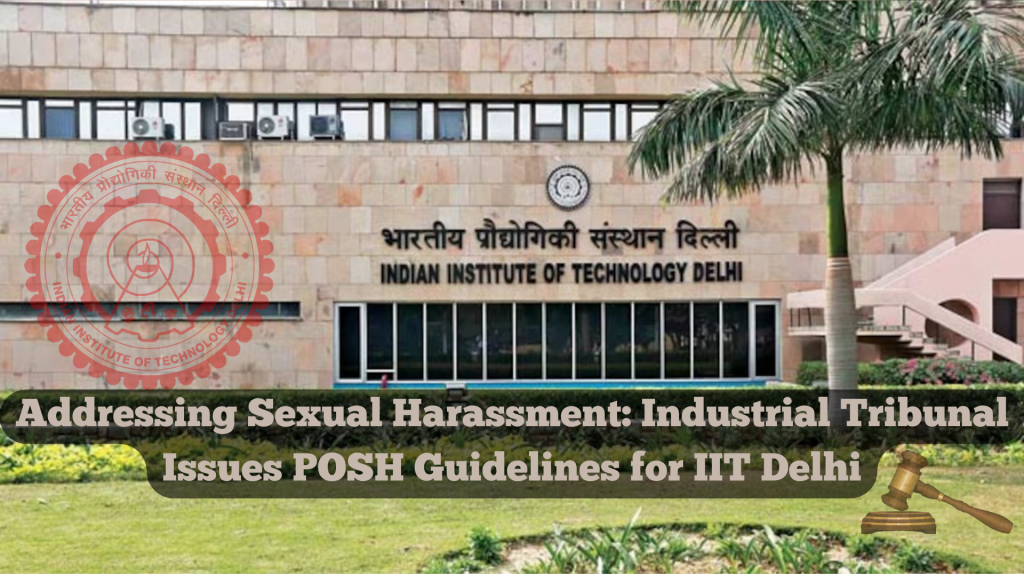
Addressing Sexual Harassment: Industrial Tribunal Issues POSH Guidelines for IIT Delhi
Judgement Given On : 10/04/2023
In a significant legal development, the Industrial Tribunal-01, Rouse Avenue Court, New Delhi, rendered judgment in Case Number RCA DJ NO. 01/22 on April 10th, 2023. This case revolves around a Ph.D. student (referred to as X) at the Centre for Biomedical Engineering, Indian Institute of Technology, Delhi (IIT Delhi), who filed a sexual harassment complaint against her Ph.D. supervisor under the Sexual Harassment of Women at Workplace (Prevention, Prohibition, and Redressal) Act, 2013 (POSH Act).
Key Findings and Recommendations:
- The Internal Committee (IC) found the charged official guilty and recommended specific actions, including a stern warning, a prohibition on promotion, a written apology, and records inclusion in future complaints.
- The appellant appealed the IC’s recommendations to the Industrial Tribunal, requesting stricter enforcement, enhanced punishment, and punitive measures for the respondent’s non-compliance.
Judicial Outcomes:
- The Tribunal allowed the appeal despite the charged official’s absence as a party, emphasizing that the case should be decided on its merits.
- The Tribunal determined that the appeal was technically non-maintainable under IIT Delhi Rules and the Central Civil Services (Classification, Control, and Appeal) Rules, 1965 (CCS (CCA) Rules) but chose to evaluate it on merits as per the POSH Act.
- The Tribunal upheld the IC’s recommended punishment as appropriate and legally sound, refraining from further comments pending the charged official’s ongoing appeal.
Broader Observations by the Tribunal:
- The Tribunal acknowledged sexual harassment as a universal issue, emphasizing its connection to unhealthy human relationships and the violation of fundamental rights under the Indian Constitution.
- It asserted that the new laws in India prioritize safety for women in workplaces, calling for comprehensive protection within educational institutions.
Issuance of POSH Guidelines:
In an effort to prevent future incidents, the Tribunal issued guidelines specifically for IIT Delhi, aligned with the objectives of the POSH Act. Key guidelines include:
- Creating awareness about bullying, harassment, and unwanted sexual attention.
- Ensuring clear communication of policies and redressal mechanisms.
- Educating students about ‘active consent’ in intimate relationships.
- Establishing safe and accessible complaint registration mechanisms.
- Providing medical, police, and legal support for complainants.
- Enhancing security with proper lighting and operational CCTV cameras.
- Ensuring visibility of professors’ rooms, with panic buttons and CCTVs.
- Installing adequate lighting at blind spots.
- Conducting workshops and seminars on sexual harassment.
- Publicly declaring a zero-tolerance stance toward sexual harassment.
The Respondent was directed to comply with these guidelines within one month. This judgment underscores the significance of addressing sexual harassment, promoting awareness, and safeguarding the rights and dignity of individuals within educational institutions and workplaces.
